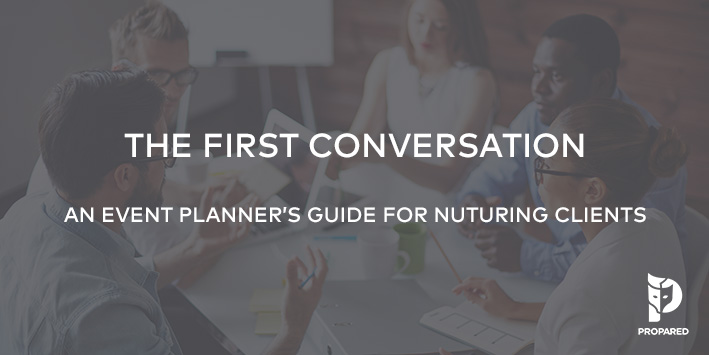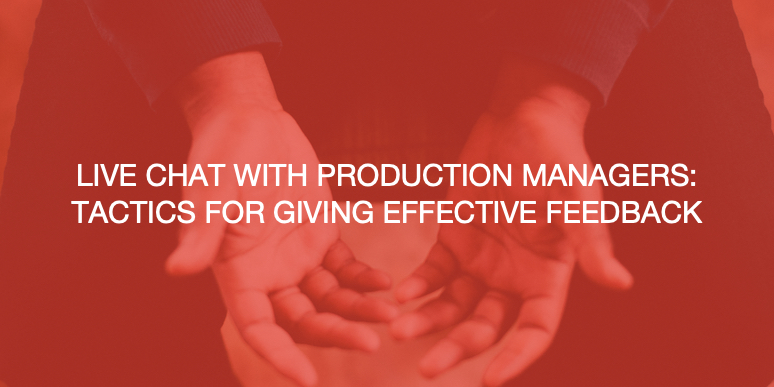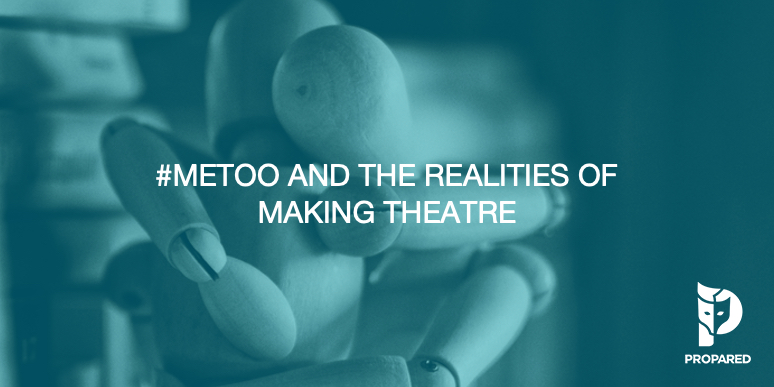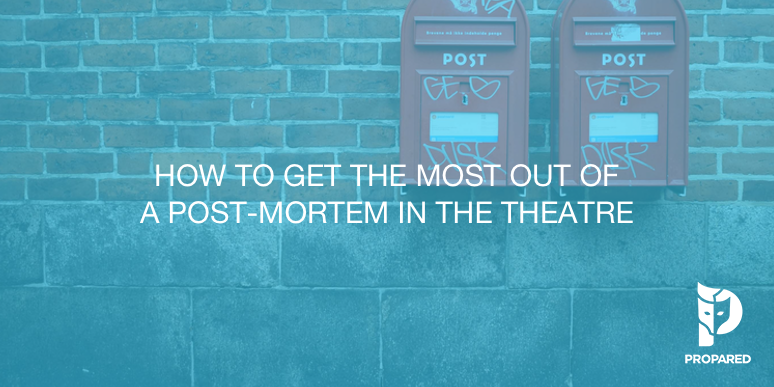
The phone rings. On the other end: a potential client with an event he or she needs to execute. This “First Conversation” is crucial. How you handle it might be the difference between securing a contract (or at least, vaulting to the head of the line) or losing it. In fact, research into candidate interviews shows a strong correlation between positive early impressions and the final ratings. Here are some goals you’ll want to accomplish before you both bid your adieus.
1. The Basics (or The Stuff You Know You Need So Why am I Telling You)
For most event managers and planners, these questions are second nature. But it’s surprisingly easy to just kind of loop them into a meandering conversation. Suddenly, you’re hanging up the phone and you realize either you didn’t write the answers down or have to comb through your notes to find them. Already, you’re off to a rocky start. Give yourself some structure and follow an outline. Get this stuff first.
-
Name, email, phone number, company
-
The goal of the event
-
Date/Time
-
Location (if known)
-
Budget
-
Other stakeholders (e.g. partner firms, vendors, marketing agency, etc. Anyone you have to work alongside.)
2. Getting to Know You…
You’re interviewing the client as much as he or she is interviewing you. In fact, there are plenty of circumstances where you might be the one declining a job. After getting some basics, find out what you can about the client and his or her company. If you’re a multitasking guru, do some quick Googling. Otherwise, just ask questions. This is a perfect opportunity to identify any mutual contacts or colleagues. In fact, referrals offer the best odds for getting hired. While this call might not have come from a referral initially, how great to find a connection point that the client can go back to and confirm at a later time?
3. Translate this Page
Truth: the decision to take a project is rarely based on the answers the client gives you. More often, you arrive at your decision after filtering the client’s answers through your own internal “smell test.” Here are a few examples.
-
Is the project based in reality?
You should be able to suss this one out fast. Some clients have completely unrealistic plans with which you know you’ll have to struggle. Is it worth the time? You don’t have much of it. Choose wisely.
-
Do you get the general sense that this is the sort of client with whom you could partner?
While you don’t work for the same company on a day-to-day basis, you essentially become one entity on event day. Culture fit is vital to accelerating productivity.
-
Do they seem competent? Intelligent? Is there give and take? Is there some level of understanding about what you do and what is involved to execute the event?
A “No” to any of these questions doesn’t mean you won’t take the gig. But it does give you a sense of the effort that will be required. Odds are you’ll soon be drafting an event proposal. That takes time and you want that time to be well spent.
-
Is the budget generally appropriate for the event?
Sometimes you can get a sense of this even if they don’t list exact budget numbers. For example, if the client says to you, “There’s gonna be lots of pyro!!” Does he or she client have an understanding that special effects are expensive?
-
Is safety a prominent part of his or her initial plans? And if not, is he or she receptive to allocating resources to build out robust safety plans?
-
Based on everything you’ve heard so far and your knowledge of the competencies of your team, do you have the capability to do the job?
4. Allow Myself to Introduce….Myself
While you don’t want to steamroll the client by listing your entire resumé, you do need to instill some confidence. Let him or her know you are the right person for the job and begin to build trust. Start by recapping what you’ve heard the client say. Provide some examples of how you’ve handled this type of event in the past. If it’s new territory for you, talk about crossover skills. Many clients don’t realize this, but the skills needed to produce live events, be they corporate or theatre or otherwise are actually pretty similar. Also, this is a great opportunity to confirm that culture fit mentioned above. If you share similar values, mission, or vision, put it out there!
5. When Can I See You Again?
Just like dating: if this is a relationship you want to pursue, you’ve got to nurture it. Be proactive. Before the conversation is over, lay out the next steps. If it’s delivering a proposal, set a deliverable date and a 2nd meeting to review. Confirm it and send a calendar invite. If you don’t do it before the call is over, it increases the chance that either or both of you get caught up in other business and forget. And if at all possible, take this second meeting in-person. Most “First Conversations” happen remotely so it’s important to put a face to the voice. Meet the client on-site at the proposed venue and do a walkthrough. Whatever you can do to stay top of mind while still providing value that moves the engagement forward.
The initial conversation between an event planner and client can be stressful. You might feel the need to cover every base so the client doesn’t hang up with unanswered questions. Don’t fall into this trap. Focus on getting the basics and making a connection with the client. There will be time (even on the shortest turnaround) to get into the fine details. But you can’t move forward without first ensuring you’re on the same page and want to work together.
Event planners – how do you engage prospective clients? What information do you seek and what do you provide to ensure you the best chance of securing a contract? Let us hear your thoughts in the comments below.




